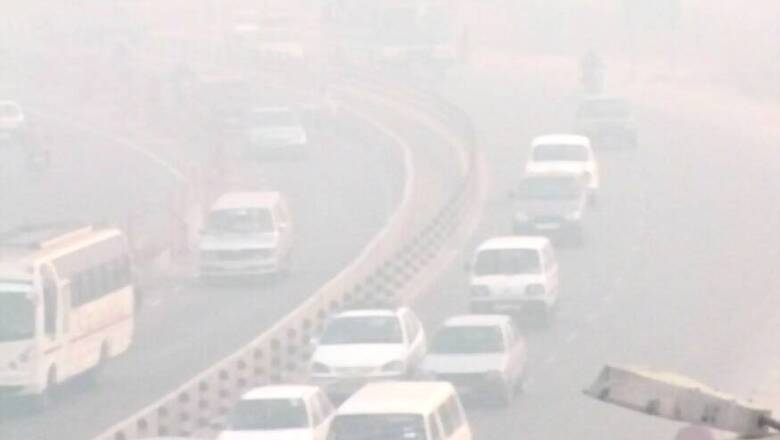
views
New Delhi: The shroud of smog engulfing New Delhi has not only rattled its residents but alarmed countries over the safety of their people living in the capital.
The United States Embassy in New Delhi, after working with the Delhi government previously on containing air pollution, has already planned two timely workshops on air quality and health next week, learnt News18 as it reached out to embassies about the precautions they’ve taken for the staff and families who call Delhi home.
Post the Diwali weekend, as Delhi’s air quality index stayed stubbornly in the ‘severe’ category, the US Embassy’s Spokesperson told News18 that they had employed a series of measures for the safety of their employees.
These included “sealing building envelopes, supplementary air filtration, and constructing vestibules to provide clean air in our workspaces”.
Asked about the well being of school going children exposed to toxic air, the Embassy also said, “We cooperate closely with the American Embassy School on clean air issues, sharing information and expertise, in order to help the school make informed decisions regarding student activities.”
The US Embassy acknowledged that they have taken up air pollution as a concern with the Delhi government, holding “ongoing discussions with the Delhi government on strategies to improve energy efficiency in government buildings, including sharing expertise on green buildings.” In May 2016, they gave an example, they held a series of workshops across Delhi, Chandigarh, Jaipur, and Lucknow, in partnership with IIT Delhi.
American “experts in air quality” were flown in to work with local officials and Indian experts to examine the challenges to improving air quality throughout North India. This group “is developing specific suggestions to governments on actions that could improve the air throughout the region”.
“We will be receiving a team from CPCB to meet with EPA officials to share information”, said the Embassy spokesperson, adding they would be holding two workshops on November 7-8 and November 8-10 on air quality and health.
The U.S. Centers for Disease Control and Prevention (CDC) and the National Institutes of Health (NIH) are collaborating with the National Center for Disease Control (NCDC) and Chest Research Foundation (CRF), Pune to conduct two workshops over the next week- one on “Building the bridge between air quality, weather and health in India” on 7-8 November and a joint “Indo-US Workshop to Explore Bilateral Research Opportunities to Address Air Quality and Health Issues” on 8-10 November.
Though the British High Commission in New Delhi has a energy and climate change unit that works with government bodies in India, they declined to comment for this story, saying they wouldn’t “speak publicly about internal management issues”.
Though none of the embassies who replied to News18 took specific measures for Diwali, they all undertook ways to secure their building’s premises, all year round, mainly through indoor air purifiers.
The German Embassy too said that their “central ventilation system includes an air filter that purifies the air” and that the “the offices at the Embassy have been equipped with air purifiers.” They added that December 2014 onwards, the purchase of air purifiers for the expatriate staff members' private homes has been subsidised.
Similarly, the French embassy replied saying , “Air filters are already installed at the embassy.” The Australian Embassy’s chancery and the residences are also “fitted with appropriate filtering systems and residences have been supplied with air filters”.
The Australian mission here regularly works with “colleagues in Canberra to establish longer-term strategies to mitigate the effects of pollution on staff in countries where it is significantly higher than WHO guidelines.” The embassy has issued an advisory on the levels of pollution India witnesses especially in winter, on cautioning its citizens against the “high levels of seasonal smog and heavy particulate pollution”.
Additionally, the German Embassy staff are entitled to an additional three days of leave that must be spent outside of Delhi, a scheme that was started many years ago (the first such initiative to grant extra leave related to air pollution dated back to 1996), but crucial now.


















Comments
0 comment